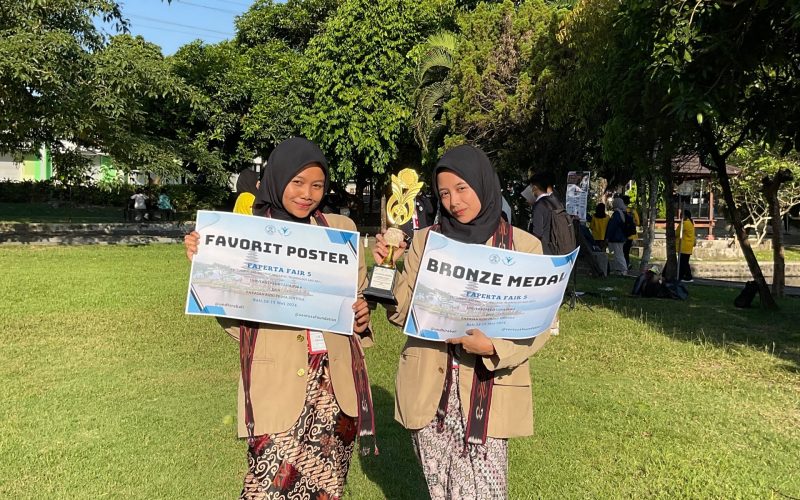The issue of pathogens in rice plants is a focus of agricultural empowerment efforts in Indonesia. These pathogens cause disease outbreaks that lead to a decrease in rice productivity. To address this obstacle, some farmers tend to rely on pesticides without noticing the condition of the rice plants. As a result, their efforts were ineffective and posed a threat to environmental health due to chemical pollution from excessive pesticides.
Addressing this issue, Adzkiya Aqmaliza Rahmattillah and Sheva Rimma Dhanty, biology students from the class of 2021, innovated a smartphone-integrated smart scanning application based on Artificial Intelligence called ORYSMART. This application can detect diseases in rice plants and provide treatment recommendations, under the guidance of Dr. Wiko Arif Wibowo, S.Si. ORYSMART was introduced at the FAPERTA FAIR (Futuristic and Prestige Research, Technology, and Art) 5 competition at Dhyana Pura University, Denpasar, Bali, on May 18-19, 2024. In its fifth batch, FAPERTA FAIR carried the theme “The Role of Young Innovators in Facing Global Competition to Welcome Golden Indonesia 2045.” At the event, Adzkiya and Sheva, with ORYSMART, won the Bronze Medal and the Favorite Poster Award in the Technology subtheme as a futuristic innovative solution that can help address diseases in rice plants. With its scanning and recognition capabilities, ORYSMART can detect the type, symptoms, causes, and handling solutions for rice plant diseases. The application offers advanced analysis that combines human and artificial intelligence, providing more accurate disease analysis and effective handling solutions. ORYSMART also facilitates access to consultations with experienced and reliable plant protection experts.
This application aimed to empower rice farmers in Indonesia to manage their fields better and more effectively. Therefore, ORYSMART is designed to be practical and easy to use, especially for users who are not yet familiar with the technology. This innovation is expected to be a significant step in agricultural empowerment in Indonesia, supporting national food security towards Golden Indonesia 2045. This innovation and idea also contribute to achieving SDG 2 (zero hunger) by improving rice productivity, the staple food for most Indonesians. [Author: Sheva Rimma Dhanty]


